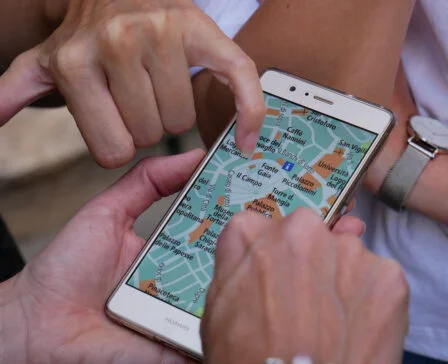Coronavirus (Covid-19) Information
We are continuously monitoring the situation, taking guidance from Public Health England (PHE) and the World Health Organisation (WHO), and are mindful of the concerns this raises for people with an ileostomy or internal pouch.
We are being asked many questions about this pandemic and having an ileostomy, and have created a series of FAQs below.
Last updated 10/12/2021
General Coronavirus FAQ
Is Coronavirus still something I should be worried about?
England is moving to Plan B in response to the risks of the Omicron variant.
Check the government website for guidance on the current advice and regulations: https://www.gov.uk/guidance/covid-19-coronavirus-restrictions-what-you-can-and-cannot-do
– Wear a face covering in most indoor public places and on public transport
– Get tested and self-isolate if required
– Work from home, if you can
– Get vaccinated
– Let fresh air in if you meet indoors. Meeting outdoors is safer.What should I do if I am showing symptoms?
If you develop symptoms associated with coronavirus, you should self-isolate and get in touch with the 111 online coronavirus service here: https://111.nhs.uk/covid-19.
If you think you are symptomatic, you can use the NHS 111 online symptom checker and get advice on what to do next.
The symptoms of coronavirus are:
- A high temperature – this means you feel hot to touch on your chest or back (you do not need to measure your temperature)
- A new, continuous cough – this means coughing a lot for more than an hour, or three or more coughing episodes in 24 hours. If you usually have a cough, it may be worse than usual)
How long should I stay in self-isolation?
If you’re a contact of someone who may have been infected with the Omicron variant, you must self-isolate for 10 days, regardless of your age, vaccination status or any negative test results.
If you have COVID-19 symptoms you should stay at home and self-isolate immediately. You should arrange to have a PCR test as soon as possible. If this PCR test result is positive, you must continue to self-isolate.
If you do not have COVID-19 symptoms, but you have a positive PCR test result, you must stay at home and self-isolate.
For full government UK guidelines on self-isolation or what to do if you have come into contact with covid-19, please visit the UK government website: https://www.gov.uk/government/publications/covid-19-stay-at-home-guidance/stay-at-home-guidance-for-households-with-possible-coronavirus-covid-19-infection
Where can I find the most up to date advice about Covid-19?
The UK government website hosts the most current information here: https://www.gov.uk/guidance/covid-19-coronavirus-restrictions-what-you-can-and-cannot-do
If I have worrying cancer symptoms, should I still present to my GP?
Yes. Whilst people are generally being advised to stay away from GP surgeries and A&E as much as possible during the Covid-19 outbreak, it is still important for you to present to your GP if you think you have symptoms of a cancer, such as a lump, pain, loss of appetite, loose bowel movements, or any change that is unusual for you and doesn’t go away. Spotting cancer early means treatment is more likely to be successful.
Do I still need to wear a face mask out in public?
From the UK government website:
You must wear a face covering in most indoor public places, at large venues and events, and on public transport.
From 13 December, you should work from home if you can.
From 15 December you’ll need to show your NHS COVID Pass at nightclubs, some venues and large events to show you’re fully vaccinated, have had a negative test result in the last 48 hours, or you have an exemption.
The Department for Transport has updated its guidance on safer travel for passengers.
Infection Prevention Control (IPC) guidance advises that patients and visitors across all healthcare settings should wear a face covering, providing it is tolerated and is not detrimental to their medical or care needs. They should also be worn in care homes to protect residents from the risk of infection.
The Department for Education (DfE) has its own guidance on the use of face coverings for schools and other education institutions that provide education for secondary school-age pupils, young people and adults in England.
What are the current travel guidelines?
The Foreign Office provides country-by-country travel advice here: https://www.gov.uk/foreign-travel-advice
Is there still a red list?
Anyone aged 12 and over must take a PCR or lateral flow test 2 days before travelling to England, and show a negative result.
You must also take a PCR test within 2 days of arriving and self-isolate until you get a negative test result, even if you’re fully vaccinated. Check what you need to do to travel to England from another country.
Countries in Africa have been added to the red list. You can only enter England from these countries if you are a UK or Irish resident. You must quarantine in a managed hotel on arrival and take 2 COVID-19 tests.
IA and Coronavirus FAQ
How is IA affected?
IA have taken steps to ensure its staff and volunteers are following government social distancing guidelines. IA National Office staff are now operating from the office on a part-time basis, with 60% of their time spent in-office and the rest spent working at home.
The National Office inbox is still being monitored and calls are still being received. However, we are on a reduced staff, so we appreciate your patience if you struggle to get through first time.
All social media channels are still operating and you are welcome to contact us on Twitter, Instagram or Facebook, and membership payments are still being taken through our website if you wish to join. Board meetings are taking place remotely via Zoom to ensure the charity continues to run and decisions are made. Trustees are mindful of the continuing discomfort around meetings taking place in confined areas, and have agreed to continue using Zoom while Covid cases remain high. Face-to-face meetings will resume in due course.
On a local level, many IA branches and affiliates around the country and in Northern Ireland have resumed face-to-face meetings, although some groups still choose to meet over Zoom.
Can dehydration or poor absorption through my ileum lower my immune system?
Nutrients from food are absorbed through the wall of the small intestine in the same way as before surgery (removal of the colon), so provided that any disease of the bowel, such as Crohn’s, is well-controlled by medication, and you have a varied diet, your nutrition (absorption) should not be affected. There may be an ‘increased risk of dehydration’ because you no longer have a colon, where water and salt used to be reabsorbed, but the remaining small intestine adapts in time to absorb what the body requires. It isn’t simply an issue of drinking more water – management of ‘hydration’ as well as the issue of a ‘high output stoma’ are addressed in our factsheet Staying Hydrated, available from National Office (0800 018 4724; info@iasupport.org).
You can avoid anaemia by eating a varied diet that contains iron-rich food. For example, eggs, green vegetables, meat (including liver), beans and pulses, and dark chocolate (70% cocoa solids and over). But if you are concerned about your diet, you should discuss it with either your Stoma Care Nurse or dietician.
The immune system is responsible for protecting against and treating infection and is made up of many organs and processes in the body, including the spleen and white blood cells (lymphocytes). Our immunity is influenced by diet, sleep, exercise and stress, amongst other things. The bacteria in the gut (including the small intestine) also play a part, and these can be influenced by eating a healthy diet including fresh fruit and vegetables (to boost vitamin C and anti-oxidants), fibre and vitamin D (particularly in the Northern hemisphere winters where there is reduced sunshine). This can be found In oily fish (salmon, mackerel) liver, eggs, cheese, and fortified foods. Getting seven or eight hours sleep per night, exercising (within personal limits) and avoiding stress can also help. People taking immunosuppressant medication, e.g. for inflammatory bowel disease or chemotherapy, should take extra care to avoid contact with infection.
Am I at risk if I am taking immunosuppressive/immunomodulating medicine?
People taking immunosuppressive/immunomodulating medicines are considered ‘vulnerable’ or ‘high risk’, which means they are more likely to encounter severe infection or complications from Covid-19 if they are infected. If you become symptomatic of a Covid-19 infection, you may need to halt or adjust your medicines until your symptoms pass – however you must contact your GP or IBD specialist in the first instance to seek advice before doing so.
The IBD Registry and the British Society of Gastroenterology have created this excellent tool for people with IBD to assess their risk from Covid-19. This tool also helps them to gather information about how Covid-19 affects IBD patients. Click here to use the Covid-19 IBD UK tool.
Should I be requesting increased quantities of stoma supplies?
There is no need for you to do anything different when ordering or taking your medicines; continue with your ordinary repeat prescriptions. NHS England and the Department of Health have issued statements to reassure patients that it will be business as usual where your prescriptions and supplies are concerned.
The Department of Health have stated that there are no prescription medicine shortages as a result of Covid-19 and patients should order prescriptions and take their medicines as normal.
Coronavirus (COVID-19) Booster vaccine
People aged 40 and over can now pre-book a booster vaccine 2 months after their second dose. Book your booster vaccination appointment online or find a walk-in clinic. The NHS will contact you when you are eligible to book your booster dose.
Pregnancy, breastfeeding, fertility and coronavirus (COVID-19) vaccination
From the NHS website:
You can be vaccinated against coronavirus (COVID-19) if:
- you’re pregnant or think you might be
- you’re breastfeeding
- you’re trying for a baby or might get pregnant in the future
If you’re pregnant
If you’re pregnant and have not had a COVID-19 vaccine yet, it’s preferable for you to have the Pfizer/BioNTech or Moderna vaccine.
This is because these vaccines have been more widely used during pregnancy in other countries and no safety concerns have been identified.
If you’ve already had the Oxford/AstraZeneca vaccine for your 1st dose and did not have any serious side effects, you should have it again for your 2nd dose.
The vaccines cannot give you or your baby COVID-19.
Booking your vaccination appointments
You can book your COVID-19 vaccination appointments online.
If you’re under 40, you’ll only be shown appointments for the Pfizer/BioNTech or Moderna vaccines.
If you’re 40 or over, you’ll be asked if you’re pregnant to make sure you’re only shown appointments for these vaccines.
Information:
You’ll be able to discuss the benefits and potential risks of having a COVID-19 vaccine in pregnancy at your vaccination appointment.
You can also speak to a GP or your maternity team for advice.
You may find the COVID-19 vaccination in pregnancy decision aid from the Royal College of Obstetricians and Gynaecologists (PDF, 643kb) helpful.
If you’re breastfeeding
You cannot catch COVID-19 from the vaccines and cannot pass it to your baby through your breast milk.
If you’re breastfeeding, the vaccines you can have depends on your age:
- if you’re 40 or over, you can have any of the COVID-19 vaccines
- if you’re under 40 and do not have a health condition that increases your risk of getting seriously ill from COVID-19, it’s preferable for you to have the Pfizer/BioNTech or Moderna vaccine
The Pfizer/BioNTech or Moderna vaccines are preferable in people under 40 because of an extremely rare blood clotting problem linked to the Oxford/AstraZeneca vaccine.
Find out more about COVID-19 vaccine side effects
Fertility and COVID-19 vaccination
There’s no evidence the COVID-19 vaccines have any effect on your chances of becoming pregnant.
There’s no need to avoid getting pregnant after being vaccinated.
I'm still shielding - what if I have a problem with my stoma?
If you start to develop skin irritation around your stoma, this could be a sign that your bag is leaking and you may need a different system. There are creams you can try from your stoma supply specialists to remedy the skin irritation. Call your stoma supplies company to speak to a stoma nurse who is familiar with your particular brand, OR call your NHS stoma nurse for advice.
If you have any pain or worrying symptoms, or if you think you may have a blockage or infection, contact NHS 111 for advice. DO still present to your GP if you have worrying symptoms.
The Stoma Care Self Help Guide
The Association of Stoma Care Nurses have supported IA to share an excellent resource to help you assess your stoma during lockdown, when you may not have access to a stoma care nurse.The guide includes everything you need to identify issues with your stoma, such as bloating, bleeding, skin conditions or high output, with advice to remedy it yourself or to know when to seek further medical support.
This document can be used by both professionals and patients and is available for you to download here.
The Stoma Care Self Help Guide is endorsed by ASCN and created by Jenny Williams of Brighton and Sussex University Hospitals NHS Trust.
What if I need extra support when travelling?
What is the Hidden Disabilities Sunflower?
The Hidden Disabilities Sunflower is a globally recognised symbol for non-visible disabilities, also known as hidden disabilities or invisible disabilities.
Not all disabilities are visible – some are not immediately obvious. They include autism, chronic pain, and learning difficulties as well as mental health conditions, mobility, speech impairments, and sensory loss such as speech, sight loss, hearing loss, or deafness. They also include respiratory conditions as well as chronic conditions such as diabetes, chronic pain, and sleep disorders when these significantly impact day-to-day life. Although you may not be able to see these invisible impairments and conditions, they’re still there.
People living with these often face barriers in their daily lives including a lack of understanding and negative attitudes. So some choose to wear the Hidden Disabilities Sunflower to discreetly identify that they may need support, help, or just a little more time in shops, transport, or public spaces.
When travelling through UK airports or using public transport, you might benefit from using the Sunflower Lanyard if you feel you might need support or assistance at some point during your journey. Visit the website for a full list of participating airports and to purchase a Sunflower lanyard or card if you feel you might benefit from one: https://hiddendisabilitiesstore.com/insights/post/airports-around-the-world
Useful resources






